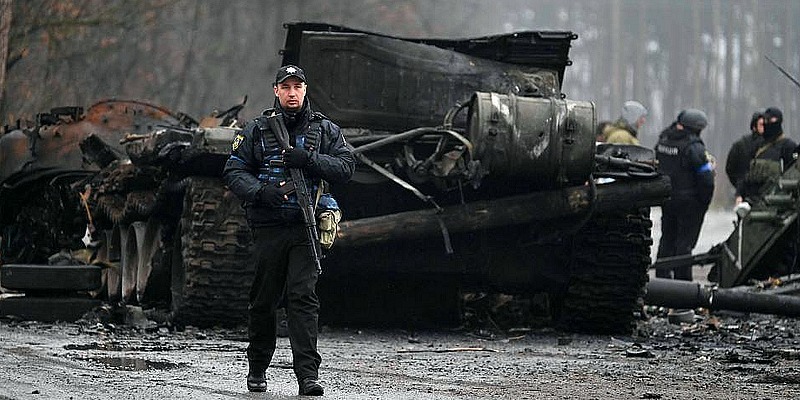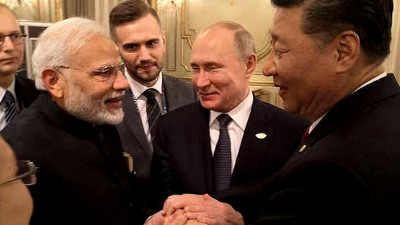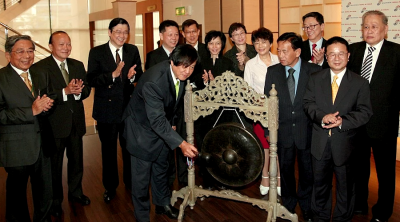BERLIN: A boy dies in a cycling accident in Berlin after street lights were turned off at night, as Germany faces an energy crunch following the shutdown of Russian gas supplies.
At first glance, the story appears to be a genuine article from the country’s top tabloid, Bild, and it was shared on Facebook.
But investigations, including by AFP, found it was disinformation, part of a major campaign in which leading news sites — mainly in Germany but also other European countries — were imitated to spread pro-Moscow messages.
In late September, Facebook’s parent company Meta took down what it called the “sprawling network” behind the campaign, which it said originated in Russia and focused primarily on Moscow’s invasion of Ukraine.
More than 60 sites impersonated legitimate news organisations, including in Britain, France, Italy and Ukraine, Meta said. According to researchers, among the impersonated media were Britain’s Guardian, Germany’s Der Spiegel and Italy’s ANSA news agency.
EU DisinfoLab — an NGO that also investigated the campaign — said the network’s aims were “depicting Ukraine as a failed, corrupt and Nazi state” as well as “promoting Kremlin narratives on the Ukraine war.”
The network, operating since May, was also intended to spread fear among Europeans “about how sanctions against Russia will ruin their lives”, said the group, with whom AFP cooperated in its investigation.

German energy crunch
Linking punitive measures against Moscow to the impact on people’s lives appeared to be the aim of the Bild article, which came online in August.
Russia’s move to slash gas supplies to Europe, believed to be in retaliation for sanctions, has hit Germany hard, prompting the government to unveil a controversial 200-billion-euro ($198-billion) relief package last week.
A series of other false articles have appeared in Germany, including one about a school in the northern city of Bremen being hit by an explosion as it sought to save gas, which appeared on a fake Der Spiegel website.
Another purported to be about truck drivers blocking roads to protest EU policies on an imitated site of news outlet T-Online.
In addition, a fake story appeared on an imitated Bild web page, claiming Ukrainian refugees set a house on fire after trying to burn a Russian flag.
German media first reported on the fake sites, before other researchers began to investigate.
Investigations by AFP’s Fact Check team showed the Bild article about the cycling accident, in which the boy was purportedly killed after riding his bike into a hole, to be falsified.
A Berlin police spokeswoman said no such accident had occurred, telling AFP: “No young person has died in a traffic accident so far this year.”
In the German capital, street lighting is the responsibility of the agency for the environment, urban mobility, consumer protection and climate action.
An agency spokesman said the article was “definitely a false report,” and they had not turned the street lighting off at night.
Keeping streets lit to ensure traffic safety is a legal requirement in Berlin, and “is strictly observed”, the spokesman said.
And a spokesman for Bild confirmed the article was fake, adding: “Unfortunately this happens regularly.”
‘Doppelganger’
The false articles followed the same pattern. They appeared on websites that resembled those of genuine mainstream media, with a similar domain name.
Paid ads or fake social media accounts then spread the articles, including on Facebook, Instagram, Telegram and Twitter.
Meta described the campaign as “the largest and most complex Russian-origin operation that we’ve disrupted since the beginning of the war in Ukraine”, and that it involved an “unusual combination of sophistication and brute force.”
EU DisinfoLab — which named the campaign “Doppelganger” — said their investigation did not “lead to a formal attribution to a specific actor”, but that elements pointed towards the involvement of Russia-based individuals.
They noted some of the domain names were purchased through Russian web hosting provider Nic.Ru, and some videos were produced on computers with Russian-language settings.
The time zone, GMT+8, of one computer suggests fake content could have been produced in the Russian region of Irkutsk and some of the articles look like those that appeared on Russian news site RRN World, according to EU DisinfoLab.
It is hard to judge the impact of the false stories and their effect may have been limited, according to researchers, but they believe posts promoting them were seen by millions of Facebook users.
ADVERTISEMENT
ADVERTISEMENT








































